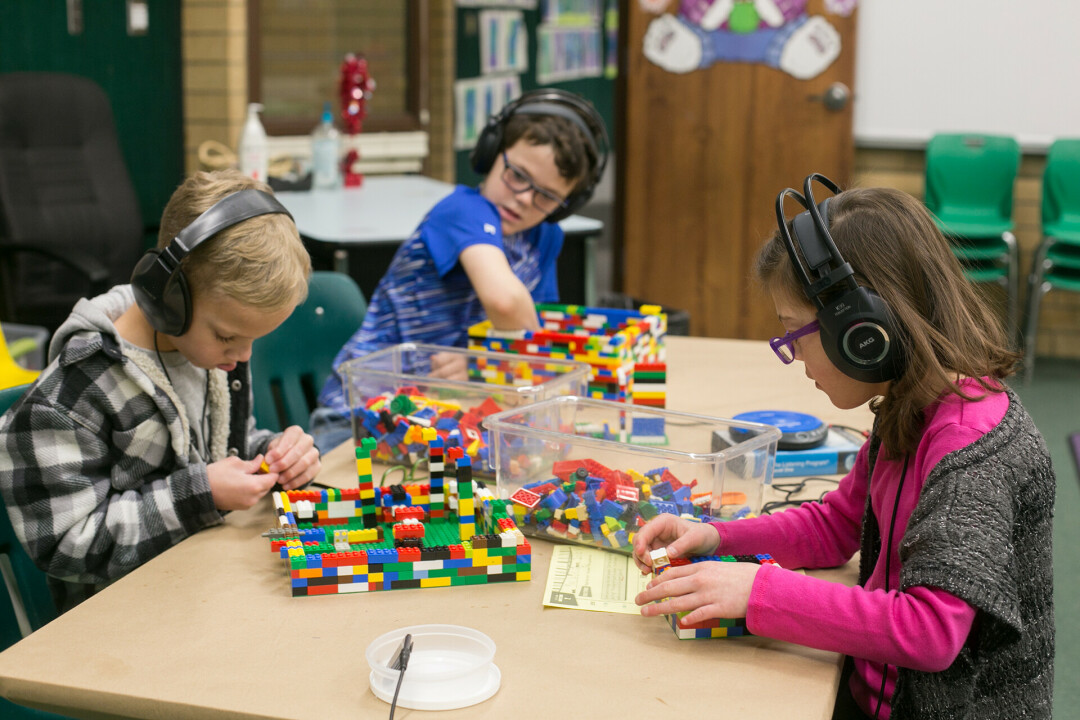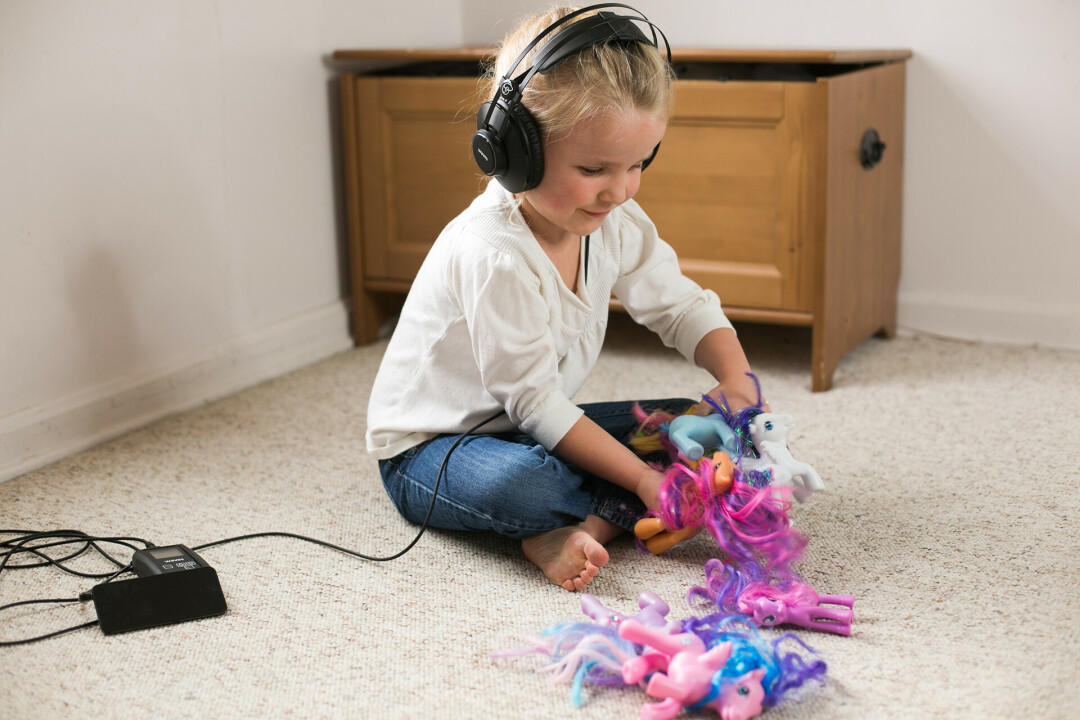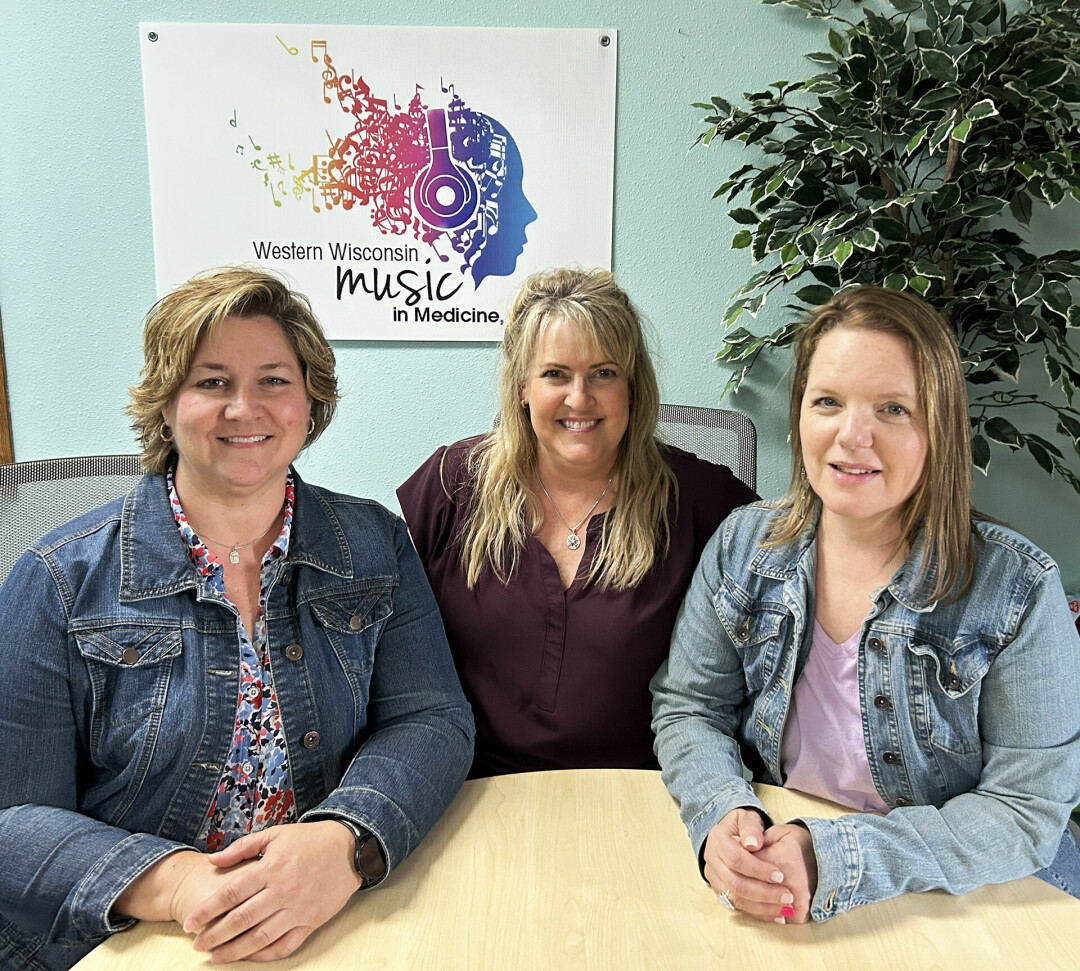‘The Listening Program’ Helps Kids Self-Regulate and More
Western Wisconsin Music in Medicine is an innovator in music therapy, and with the support of a new innovation grant by DHS, it’s helping more children in the Chippewa Valley

Music seems to be a facet of day-to-day life for most. It’s playing in the background inside grocery and retail stores, a dedicated class in school, the focus of many community events, and on the radio when you get in the car. For one area organization, it’s more than that: It’s medicine.
Western Wisconsin Music in Medicine (WWMM) supports people throughout the Chippewa Valley, using music, rhythm, and movement as healing methods. Music therapy itself is used there as treatment for a variety of health conditions including ADHD, speech-language delays, Autism, developmental delays, and much more. Thanks to a recent grant from the Wisconsin Department of Health Services, the organization is also helping local kids with self-regulation, and radically changing lives.
The Listening Program (TLP), created by Advanced Brain Technologies, is a program partially funded by a DHS grant to benefit youth ages 5-18 who struggle with self-control of behaviors, communication, motor coordination, rehabilitation after injury or illness, and more. Delivering specific resonances and sounds through headphones, different programs are prescribed – like medicine – to individual kids depending on their needs and goals.
“The sound that they hear – scientifically-created, neuroacoustic attuned classical music – is created to harness the brain’s natural ability to change itself, called ‘neuroplasticity.’ There are different resonances created by scientists embedded within the audio to help naturally rewire the brain’s connections, improving cognitive functions to help listeners unlock their full potential,” said Kim Negus, Owner of WWMM.

“It’s like medicine: You’re prescribed this specific program to listen to, and it supports different areas of the brain. You listen to it regularly and on specific intervals, and it helps the right and left sides of the brain work together,” Negus continued. “The bone conduction headphones we use stimulate the vagus nerve to decrease fight or flight and anxiety. In utero, babies hear through bone conduction, so this sensation for a child can be very soothing.”
Thanks to the grant, WWMM was given 150 devices to deliver TLP to kids throughout the community whether that’s right at their school, at the WWMM Eau Claire location, or even at home with their families. Kids using TLP have the opportunity to take the devices home with them, families receive on-site training, are shown how to administer the program for their child, and can even explore TLP for themselves.

TLP supports seven distinct areas by using music: Executive Function, Auditory Processing, Communication, Social and Emotional, Stress Response, Motor Coordination, and Creative Expression.
“One girl with Autism and Down Syndrome who started the program a few weeks ago was nearly nonverbal before, and since starting TLP, spontaneously said to her mom, ‘I love you’,” Katie Sandberg, WWMM’s Outreach Coordinator shared. “Everyone was in tears. It’s things like that, that for parents and their child, TLP is literally life-changing.”
There are about 60 spots left in the TLP program funded by the grant, open now through August. To see if your child can benefit from TLP, head to WWMM’s website, https://wwmm.us/tlp, and take the Brain Scale questionnaire. The questionnaire’s score helps indicate what needs should be addressed, and the WWMM team can connect you with the right staff member.
While WWMM is looking to support children to benefit from TLP for the grant, TLP is also beneficial for adults. WWMM also offers programs for adults to improve or prevent COPD, chronic breathing issues, and titrate off oxygen use. Additional program for kids include:
Interactive Metronome
WWMM is a certified provider of Interactive Metronome, a science-based program using a metronome to help the brain and body work better together. Following the metronome beat, the user is guided with sound and visual cues to offer real-time, millisecond feedback,
indicating an early, late, or in-sync “hit” with the beat. This helps
fine-tune motor movement and
neural efficiency, building precise neuro-timing that allows people to focus better, play sports, process
language, and more.
Calmer Kidz Summer Program
WWMM will offer a uniquely engaging program using music, rhythm, and movement to help students identify and process difficult emotions and stressors in a productive and calm manner. Calmer Kidz uses music therapy, adapted yoga therapy, TLP, and more to help them grow in several areas of self-regulation, including:
- Social & Emotional regulation
- Auditory & Sensory
- Processing
- Stress Management
- Gross and Fine Motor Skills
- Language & Communication, Executive Functioning
- Focus & Memory
The 6-week program runs July 8-Aug. 14 with morning or afternoon classes available on Mondays and Wednesdays. Email admin@wwmm.us to sign up or for more information.
Learn more at https://wwmm.us/ • Reach out at (715) 495-3768



